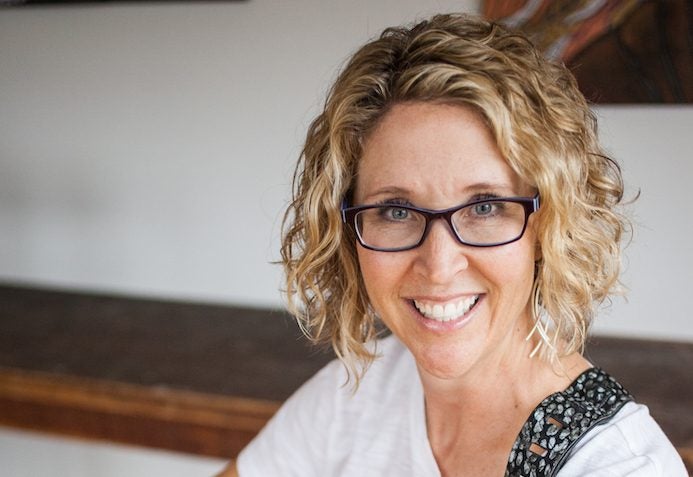SMITH: The benefits of waiting
Published 12:32 pm Friday, August 21, 2020

- Erin Smith is the owner of the OM place in Winchester, the author of “Sensible Wellness” and the online host of the OM channel. Follow her on Twitter @erinsmithauthor.
|
Getting your Trinity Audio player ready...
|
In 1987, I was assigned to Laura Temple’s freshman English class.
Mrs. Temple loved Kate Chopin as much as she hated the smell of watermelon chewing gum.
Sarcasm was her love language, and I adored her talent for recommending the exact book I needed at that point in my life. I have her to thank for “Their Eyes Were Watching God,” “Slaughterhouse Five” and “Brave New World.”
And then she had us read “Waiting for Godot,” the depressing, existential play by Samuel Beckett.
For those who haven’t read or seen the play, it involves two characters named Vladimir and Estragon who are waiting around for this other guy, Godot, to arrive. The setting is a single dead tree, so the reader is unsure if it takes place during winter or after the apocalypse.
The two men have this circulatory debate about whether Godot is going to show and what they will do if he does — or doesn’t — make an appearance. They ponder suicide and basically decide that life is meaningless, and yet, they wait.
It’s dystopian theatre at its bleakest.
As we discussed it, I raised my hand. “I don’t get it. Is Godot supposed to be God?”
Mrs. Temple smirked and raised her eyes. Maybe I was on to something. But then I blew it.
“What are they going to do if he doesn’t show up?”
Mrs. Temple grimaced, clenching her hands into fists as if beseeching the heavens to give her the strength needed to get to retirement.
“Aaaarrrgggg!” (No one aaaarrrrgggged better than Mrs. Temple). “That’s the point, Erin! Should we wait for something solely on faith, even with no guarantees that what we are waiting for will come to pass? Beckett is asking us to decide if it’s all meaningless or if there is value in faithful waiting.”
I wrinkled my nose in confusion.
“Huh? I still don’t get it.”
She put her head on her desk and groaned.
Time is valuable, I thought. Those two idiots are wasting their lives waiting on some unknowable future.
I saw the play a decade later and finally thought I understood what Beckett was suggesting.
There is value in waiting, even when the outcome is uncertain.
Humans worship at the altar of the immediate.
We glorify instant credit scores, high speed internet, quick oats, 30-minute oil changes, instant messaging, life at lighting speed.
We can get our Amazon packages the next day and our GPS is defaulted to the quickest route, not the long way around.
Why should we wait until some prescribed hour to enjoy the latest episode of our favorite show when we can stream the entire season in one sitting?
We’re addicted to the adrenaline rush of convenience and forward movement.
We have entrained our bodies to match rhythm with satellites and wireless connections rather than seasons and the waxing and waning of the moon.
Fast is better and faster is best.
But life is not an instant fix. The soul’s journey entails some waiting.
More and more, I’m seeing the pandemic as a season of waiting. Waiting without the promise of closure or resolution, waiting solely for the sake of cultivating patience and trusting the transformation process.
Transformation requires time in the chrysalis, in the belly of the whale. Like the daffodil bulb in the dark winter soil, God calls us to wait.
The word waiting arises from the Old English wæccan, meaning to watch or to wake. It’s a verb, a word of action. It isn’t lying on the couch and groaning.
Perhaps we must pause to really see, to be truly awake in our lives.
It is’t checking out of our lives, but an intentional checking in — a choice to stay awake, even when there are no guarantees that what we desire will appear.
We overfill our minds with news, our bellies with food, our days with obligations both real and imagined. Anything to avoid being in the depth of the moment, to make up for the lost time of quarantine.
But if real transformation requires real waiting, then that time was never lost at all.
I reread “Waiting for Godot” recently — because what goes better with a global pandemic than dystopian theatre, am I right? — and I realized something new.
“Waiting for Godot” reminds us that the existential crises of the human heart have not abated.
But the thing I missed all those years was this: even if God — or some dude named Godot — never shows, neither man is alone in their waiting. They have each other.
With 6 billion people on the planet, we are not alone.
There is hope and comfort in the idea that in our suffering, questioning or waiting, we are in good company.
If God and the afterlife ends up being some imagined construct, at least we have this moment and each other.
Erin Smith is the owner of the OM place in Winchester, the author of “Sensible Wellness” and the online host of the OM channel.





